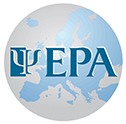Implementing alternatives to coercion in psychiatric practice
On Wednesday 19 July 2023, the Committee on Ethical Issues organised a webinar on Implementing alternatives to coercion in psychiatric practice.
Coercion is a complex phenomenon that includes both formal coercion (e.g. involuntary hospitalisation and medication, isolation and mechanical restraints) and informal coercion (e.g. pressure and threats to get the person to comply). It is important for mental health professionals to be mindful of the UN Resolution 46/119 of the Principles for the Protection of Persons with Mental Illness, which states that “psychiatrists should oppose discriminatory practices that limit their services and entitlements, deny parity, restrict the scope of treatment or limit their access to appropriate medication for patients with mental disorders”.
Within the legal and ethical requirements for the use of coercion in psychiatry, the perspective of its prevention should always be discussed. Coercion is only permissible in cases of incapacity for self-determination and immediate concrete danger to the physical integrity or life of the patient. Practical difficulties in assessing these criteria should be demonstrated by means of case studies.
Clarifying indications and controlling the use of coercion is very important. Changing the attitude towards decision support thus aims to strengthen respect for the right of self-determination of mentally ill patients and thus fairly balance the psychiatrist’s conflict between responsibility for care and respect for the patient’s right to self-determination.
During this webinar, participants looked at alternatives to coercion from different angles.
Programme:
Chairs: Meryam Schouler-Ocak, Germany, and Silvana Galderisi, Italy
- Alternatives to coercion in adults, Silvana Galderisi, Italy
- Alternatives to coercion in child and adolescents, Gil Salzman, Israel
- Cooperation vs. Coercion – Strengthening cooperation between providers and patients across Europe, Péter Kéri and István Gallai, Hungary
- The role of ethics – how can it contribute to reduction of coercion? Meryam Schouler-Ocak, Germany
Video-recording
Watch the video-recording below.
